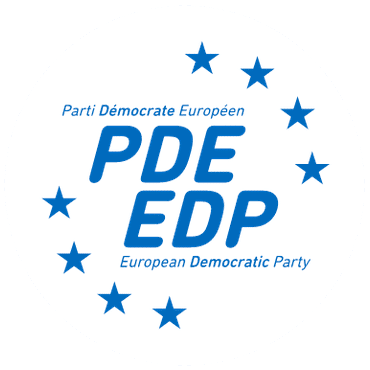
Democracy and Governance
The European Union must act more quickly and more effectively

European Democratic Party Priority Actions
The current European treaties mark more than 15 years of progress for Europe. However, the European Union now faces a unique opportunity to strengthen its institutional structure and become a sovereign and democratic Europe. To go even further, we can work to create a genuine political union based on solidarity.
We, the European Democrats, call on Europe to take back control of its destiny by strengthening the continent’s sovereignty and autonomy. Building a united political community will ensure a positive future for Europe, meeting the challenges of populism and violations of international law with constructive and inclusive solutions. To meet the challenges ahead, whether societal, environmental or security-related, the European Union must act more quickly and effectively. We want to build a prosperous and resilient future for our continent. Together, we can ensure that Europe is a positive force for its citizens and the world.
Furthermore, to strengthen democracy, we must establish the possibility of electing a president of the European Union from electoral lists common to all EU countries.
And if citizens are to renew their ties with Europe and its institutions, direct involvement in the political life of the Union is essential. Waiting for the European elections every five years is no longer enough to promote citizen participation. We propose an innovative step: setting up a Citizens’ Agora mechanism.
Every spring, national and European Citizens’ Agoras would meet to debate and propose priorities for Europe. These exchanges would feed into the annual programme presented by the President of the European Commission each September during the State of the Union address. By offering citizens this platform to express themselves actively, we will encourage direct participation in shaping Europe and strengthen all citizens’ sense of belonging and commitment to Europe.
Democracy must be strengthened by including citizens in political decision-making. By providing transparent information, treating citizens as partners and actively involving them, we guarantee democratic stability and avoid many problems.
The European Union must act more quickly and more effectively



ENDING VETOS

TRANSNATIONAL LISTS

DIRECT ELECTION OF THE EU PRESIDENT

MORE POWERS FOR PARLIAMENT

SIMPLIFYING VOTING ABROAD
- Establish a treaty revision convention to abolish unanimous voting in the Council.
- Implement the proposals of the Conference on the Future of Europe to meet the demands of European citizens in this field.
- Facilitate the faster political integration of groups of countries and peoples who demonstrate the political will to do so without the possibility of blocking by others.
- Establish the possibility of electing a president of the European Union from electoral lists common to all European countries (merging the President of the Commission and the President of the European Council).
- Include transnational lists in European Parliament elections.
- Provide the European Parliament with legislative co-decision rights when it plays an advisory role and co-decision rights on the budget, including revenue.
- Grant Parliament a genuine right of a legislative initiative to complement the European Citizens’ Initiative.
- Strengthen the role of the European Union in areas such as health, education and energy.
- Introduce an emergency clause to authorise the European Union to act with extraordinary powers in a major crisis.
- Strengthening European political parties and foundations would increase their viability.
- Ensure transparency in funding political parties and election campaigns and prohibit international interference.
- Strengthen the capacity of political parties and movements to conduct transnational political campaigns.
- Activate the clauses allowing qualified majority voting for certain EU decisions. This will avoid the blockages that can occur with the current unanimity system.
- Implement temporary passerelle clauses to allow for significant legal and institutional changes using simplified procedures.
- Improve the voting rights of residents in another Member State at European elections.
- Facilitate the participation of European citizens residing in another Member State by enabling them to vote and/or stand in their country’s regional or national elections.
- Propose the creation of a European agency to strengthen democracy in the decision-making process, citizen participation within the EU and the role of national parliaments.
- Ensure equal opportunities for all EU citizens, and pay particular attention to the most vulnerable and marginalised.
- Encourage citizen participation by using new technologies.
- Create a European citizenship statute based on the existing treaties.
- Establish a statute for European cross-border associations.
- Continue to promote the role of local and regional authorities in climate and biodiversity policies through subnational climate diplomacy.
- Develop a pilot project on promoting European values through education and culture, including identifying best practices at local and regional levels throughout the European Union, as the Committee of the Regions decided.
- Clarify that subsidiarity is not about preventing the European level from acting but about identifying the level of government that should take the lead, whether through formal exclusive powers or formal shared powers.
- Grant national and regional parliaments with legislative powers the possibility of suggesting legislative initiatives at the European Union level in the future by providing a specific mechanism for this purpose in the regulation governing the European Citizens’ Initiative.
- Change the names of the European Union’s institutions to clarify their functions and respective roles in the European Union’s decision-making process for citizens.
